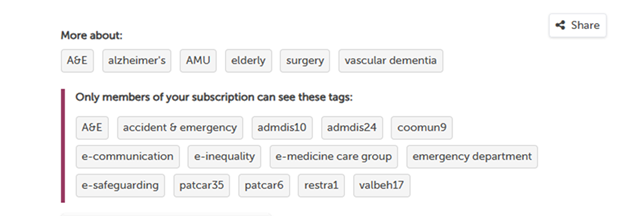
At Royal Devon we believe that every patient story matters. Care Opinion feeds into our overall Patient Experience feedback and gives patients and families a voice, sharing their experiences that help us to learn and improve. Whilst these stories are rich in insight, they often sit apart from formal complaints and PALS data, making it harder to see the full picture.
This is why we have developed an innovative approach to bridge this gap, an approach that recently earned us a PENNA Award for Excellence in Patient Experience. Here is how we did it:
The challenge we wanted to solve
Traditionally, patient feedback comes through multiple channels: complaints, PALS, surveys, and online platforms like Care Opinion. Each source is valuable, but they use different systems and coding, which makes triangulating data and feeding into divisional care groups difficult.
We asked ourselves:
How can we align the anonymous Care Opinion stories with national complaint themes to create a unified view of patient experience?
Our innovative approach
We introduced a process that combines the Care Opinion tagging function with the national KO41 complaint coding framework. Here is how it works:
- Story tagging: every day, we assign tags to Care Opinion stories arriving. The tags are based on the KO41 complaint codes the content is referring to.
- Ethical and Transparent: because Care Opinion stories are anonymous and already in the public domain, we can use AI to review the story for prompts. This approach maintains patient confidentiality whilst improving the accuracy of the tagging.
- Human review: our team reviews the suggested codes and applies them to the Care Opinion story using the tagging function if appropriate.
- Care group/Deep Dive Tagging: we also tag each story with its relevant care group, adding another layer of insight for reporting, along with tagging themes that are likely to be involved in future deep dives.
This has become a quick and simple daily task for our administrator, taking only a few minutes but adding huge value to our reporting and learning.
Why this matters
The benefits have been significant:
- Better reporting: we can now run searches on Care Opinion that align with the complaints and PALS data for a more complete picture.
- Improved accountability: Care Group tagging enables us to separate the data by division. From this we can produce reports and visualisation that are Care Group specific, allowing services to review feedback that is relevant to them.
- Actionable insights: by coding the stories against the KO41 themes, we can identify trends and areas for improvements more quickly.
Ultimately, this approach helps us to turn patient voices into meaningful change.
Recognition and impact
Our work was recognised nationally when we won a PENNA award for innovation in patient experience. The judges praised our ability to use technology creatively while keeping patients stories at the heart of improvement, which is what we were trying to achieve. For us, this recognition reflects the commitment of our team and the value of working together to find new ways of learning from feedback.
Looking ahead
We are excited to see how we can develop our use of the platform in the future. Our next steps include:
- Exploring how this approach can support further real-time learning and service improvement.
- Sharing best practices with other NHS Trusts.
How Care Opinion coding is transforming patient feedback at Royal Devon University Healthcare NHS Foundation Trust
How Care Opinion coding is transforming patient feedback at Royal Devon University Healthcare NHS Foundation Trust https://www.careopinion.org.uk/resources/blog-resources/103-images/7807425cda414b319077c8db60892862.png Care Opinion 0114 281 6256 https://www.careopinion.org.uk /content/uk/logos/co-header-logo-2020-default.pngUpdate from Royal Devon University Healthcare NHS Foundation Trust
Posted by Lisa Townsend, Patient Experience Feedback Lead, Patient Experience Team, Royal Devon University Healthcare NHS Foundation Trust, on
Thanks for your feedback.


